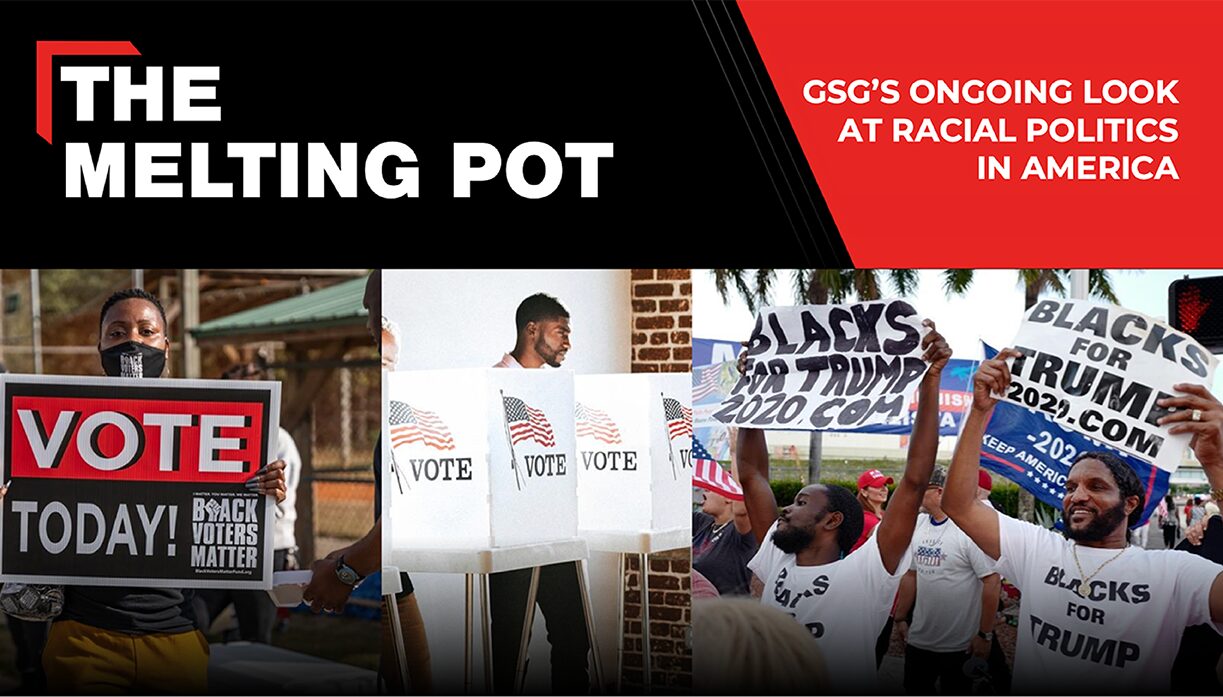
Global Strategy Group is eager to share the next installment in our series – The Melting Pot: GSG’s Ongoing Look at Racial Politics in America.
This latest report takes an in-depth qualitative look at Black voters’ perceptions of the two parties and the state of our politics in 2022 – exploring the reasons why Black voters identify with the political parties they do and how GOP charges of Democratic radicalism, socialism, and identity politics sits with them. Our key findings include:
- What keeps Black voters up at night? Economic woes and personal safety are top-of-mind for Black voters. The rising cost of living and fears about being violently targeted because of the color of their skin are both tangible and real and they worry that elected officials aren’t paying enough attention to either.
- Economic progress will lead to social progress. Overall, Black voters prefer candidates who focus on economic issues (both short-term solutions to inflation and the long-term emergence of a more equitable economy) – believing progress on such economic issues will result in positive changes on social issues broadly.
- Values are the primary driver of party identification. Democratic (big D) values are what distinguish the party, with many Black voters viewing Democrats as caring, equitable, and empathetic. Black Democrats in particular, relate to those core values and say that is why they are Democrats. On the other side of the aisle, Black voters (including many Black Republicans) say the Republican Party is motivated foremost by power and are obstructing critical legislative initiatives they believe would improve the lives of Black people and all Americans.
- Radical? Socialist? Divisive? Really? A wide range of Republican attacks that criticize Democrats as divisive radical socialists who push identity politics falls flat in the eyes of Black voters. In fact, even many independent Black voters recognize such attacks as scare tactics and mendacious rhetoric. Most Black voters want the Democratic party to continue to push for economic and social equity even if they face backlash for doing so.